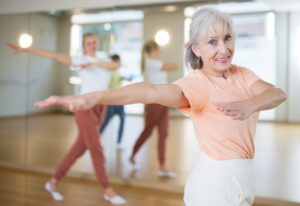
This lack of response from patients to exposure therapy led the researchers to conduct the first known single-blind randomized control trial of its kind. The study analyzed 130 adults with clinically diagnosed post-traumatic stress disorder (PTSD) and assigned them to two groups. Both groups received nine 90-minute exposure therapy sessions. However, one group was also put through 10 minutes of aerobic exercise after each therapy session, and the other group was given 10 minutes of passive stretching.
On average, people in the aerobic exercise group reported lower severity of PTSD symptoms compared to those who followed stretching exercises after a six-month follow-up. Researchers noted that after one week, there were no differences between the two groups, suggesting the benefits of aerobic exercise take time to develop.
These results offer a promising addition to exposure therapy that may raise the success rate and help many people who are suffering from an anxiety disorder such as PTSD. However, this is the first time the benefits of aerobic exercise and exposure therapy have been observed in a clinical setting, so researchers are quick to caution that more studies are needed before it can become standard practice.
“I’d really like to emphasize that this is the first trial that’s shown this in an anxiety disorder, and I don’t think we should get too excited by it,” said lead researcher Richard Bryant.
“But as with all of these things, you always need multiple trials to actually have any faith in it. So I’m certainly not telling people to run out and start doing exercise after all your exposure therapy, because I think it’s premature after one trial. But having said that, this is very encouraging.”
Researchers believe the exercise helps promote a particular brain growth molecule called Brain-Derived Neurotrophic Factor, or BDNF. This actually promotes synaptic plasticity in the brain, which is vital for learning. So, if more BDNF is active in the brain at the time of exposure therapy, theoretically, it should lead to better results.
Supporting Brain Function and Health
There are numerous factors that can take a toll on the ability of the brain to function at peak potential. This can affect memory, concentration, and overall brain function.
The Smart Pill can help to enhance cognitive function and memory through 9 ingredients that help to support, nourish, and maximize brain health. These include ginkgo biloba, huperzine A, bacopa extract, rosemary extract, and a B vitamin complex. This unique formula helps to boost circulation, fight free radicals, and provide nutritional support to assist with cognitive function.